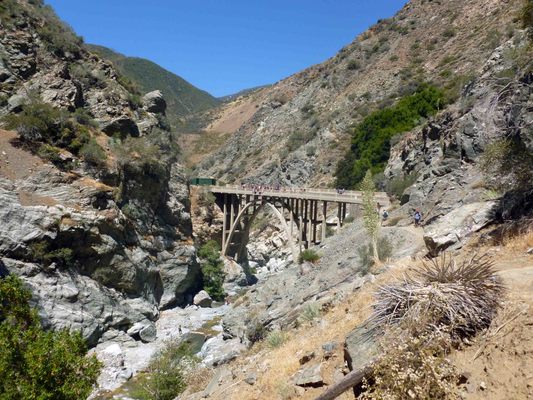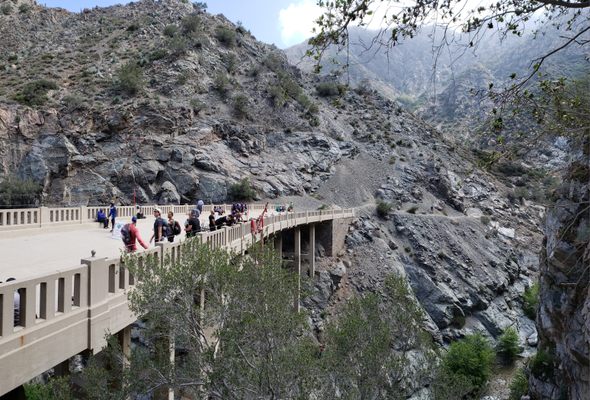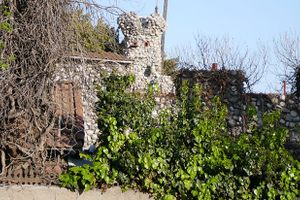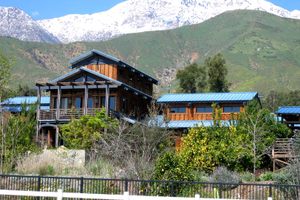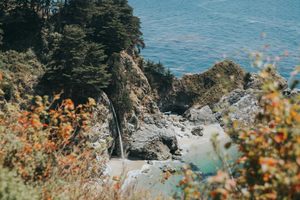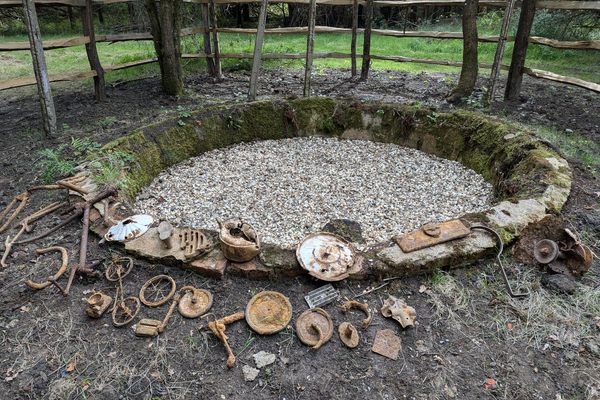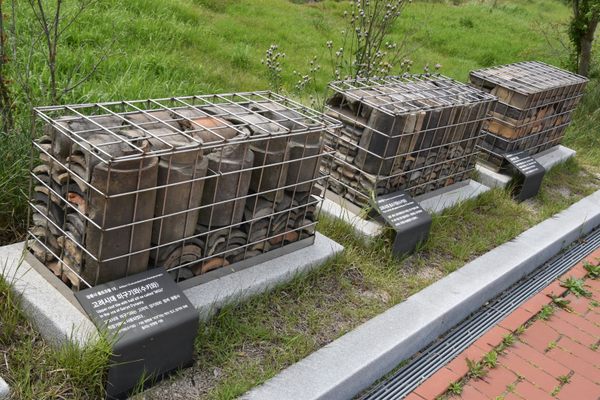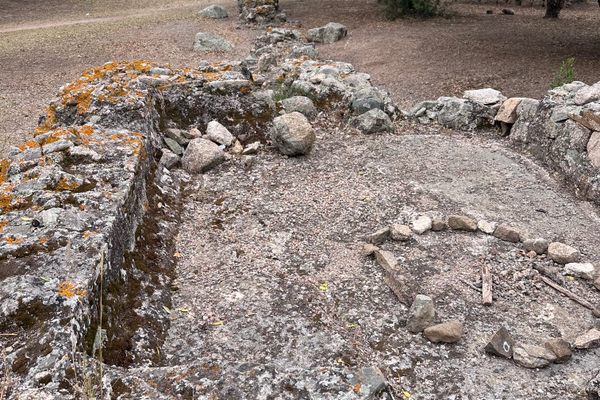About
The Bridge to Nowhere is a truss arch bridge that was built in 1936 just north of Azusa, California in the San Gabriel Mountains. The bridge spans the East Fork of the San Gabriel River and was intended to connect the San Gabriel Valley with Wrightwood, California. During its initial construction, Los Angeles County claimed that the bridge and connected highway would be one of the most scenic roads in America.
Unfortunately, these thoughts quickly changed when the East Fork Road, which provided access to the bridge, was washed out during a massive flood in 1938, just two years after the bridge’s completion. The entire project was then abandoned and the bridge was left forever stranded in the middle of the Sheep Mountain wilderness, without having a single car ever cross it.
Today, the bridge is only accessible by a 10 mile round-trip hike, which ascends to 2760 feet while crossing the riverbed six times. Parts of the old asphalt roadway can still be found along the East Fork Trail, as well as a number of concrete slabs which formed the foundations of bridges that were also destroyed by the flood. Despite its popularity, the trail frequently gets washed out and can be very dangerous. There have been a large number of deaths along the San Gabriel River due to travelers crossing the rough waters en route to the bridge. Adventurous travelers are able to bungee jump off of the Bridge to Nowhere as well.
The Bridge to Nowhere remains one of the most bizarre artifacts of the San Gabriel Mountains. What began as a significant state transportation initiative slowly became a desolate destination for hikers and bungee jumpers. The connected road and nearby bridges may have been crushed and ruined by countless floods, but the Bridge to Nowhere remains true, unused and alone in the wilderness.
Related Tags
Know Before You Go
Follow signs for the East Fork Trail
Community Contributors
Added By
Published
July 18, 2012

